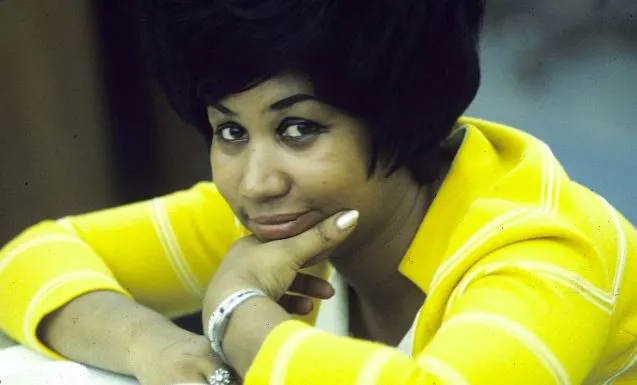
Aretha Franklin at Martin Luther King Funeral Soulful Tribute
Aretha Franklin, the legendary Queen of Soul, left an indelible mark not only on the music industry but also on the cultural and civil rights landscape of America. Her poignant performance at the funeral of Dr. Martin Luther King Jr. in 1968 stands as a powerful testament to her role in commemorating the life and legacy of one of the most significant figures in modern history.
The Context: A Nation in Mourning
The assassination of Dr. Martin Luther King Jr. on April 4, 1968, marked a pivotal moment in American history, reverberating far beyond the immediate tragedy. Dr. King had become a symbol of hope and progress in the Civil Rights Movement, advocating tirelessly for racial equality and social justice through nonviolent means. His assassination at the Lorraine Motel in Memphis, Tennessee, not only cut short a life dedicated to peaceful activism but also shook the foundations of a nation grappling with deep-seated racial tensions.
In the aftermath of Dr. King’s death, the United States was engulfed in a wave of sorrow and disbelief. Cities erupted in protests and riots as communities expressed their anguish and frustration over the loss of a beloved leader. The shockwaves extended globally, with tributes pouring in from world leaders and ordinary citizens alike, highlighting the universal impact of Dr. King’s message of equality and dignity for all.
The mourning period following Dr. King’s assassination was characterized by a profound sense of loss among those who had looked to him as a beacon of hope. His leadership had galvanized a movement that sought to dismantle systemic racism and inequality, inspiring millions to stand up against injustice. With his untimely death, the nation confronted not only the personal tragedy of losing a visionary leader but also the stark realities of ongoing racial discrimination and social upheaval.
Dr. King’s assassination served as a stark reminder of the challenges and dangers faced by those advocating for civil rights. Yet, amidst the grief and turmoil, there emerged a renewed determination to carry forward his legacy. His death catalyzed a period of reflection and rededication to the principles of equality and justice, shaping subsequent efforts in the ongoing struggle for civil rights in America and beyond.
Aretha Franklin: The Voice of Empathy and Resilience
Amid the somber atmosphere surrounding Dr. King’s funeral on April 9, 1968, Aretha Franklin emerged as a pillar of solace and inspiration. Known for her powerful voice and impassioned performances, Franklin was a natural choice to honor Dr. King’s memory through music. Invited to perform at the funeral held at the Ebenezer Baptist Church in Atlanta, Georgia, Franklin’s presence brought a sense of solemnity and reverence to the proceedings.
Her selection of “Precious Lord, Take My Hand” resonated deeply with the mourners, echoing the spiritual and emotional turmoil of the moment. Franklin’s rendition was not merely a performance but a heartfelt expression of empathy and resilience in the face of profound loss. Her voice, filled with soulful intensity and sincerity, transcended the confines of the church walls, offering comfort to those grappling with the sudden absence of a leader whose impact was felt far and wide.
Franklin’s participation at Dr. King’s funeral symbolized the intersection of art and activism, demonstrating the profound influence of music in shaping cultural narratives and fostering communal healing. Her tribute reaffirmed the enduring legacy of Dr. King’s teachings and the ongoing struggle for social justice, encapsulating the spirit of resilience that defined both her career and the movement for civil rights.
In honoring Dr. King with her voice, Aretha Franklin not only paid homage to a fallen leader but also reaffirmed her role as a cultural icon whose artistry transcended genres and united audiences in times of sorrow and solidarity.
The Performance: “Precious Lord, Take My Hand”
Aretha Franklin’s rendition of “Precious Lord, Take My Hand” at Martin Luther King Jr.’s funeral in 1968 was a deeply poignant and symbolic moment. The choice of this particular hymn was not arbitrary; it carried profound significance both musically and thematically.
“Precious Lord, Take My Hand” was a favorite hymn of Dr. King himself, often sung in the churches where he preached and during civil rights gatherings. Its lyrics, penned by gospel composer Thomas A. Dorsey, embody a heartfelt plea for divine intervention and guidance during moments of hardship and uncertainty. The song’s central message of trust in God’s providence and strength resonated deeply with the mourners gathered to honor Dr. King, reflecting their shared faith and resilience in the face of tragedy.
Aretha Franklin, renowned for her soulful and powerful voice, brought a unique emotional depth to her performance. As she sang, her rendition was not just a musical tribute but a spiritual invocation, channeling the grief and hope of the congregation. Her soul-stirring delivery of the hymn’s verses evoked a sense of collective mourning and determination among those present, offering solace and comfort through the power of music.
Moreover, Franklin’s performance underscored her role as more than just a singer but as a cultural figure deeply intertwined with the civil rights movement. Her presence at Dr. King’s funeral was a testament to her commitment to social justice and equality, using her talent to honor his legacy and inspire a nation in mourning. Through her rendition of “Precious Lord, Take My Hand,” Franklin reinforced the enduring connection between music and activism, demonstrating its ability to heal wounds and unify communities in times of adversity.
In essence, Aretha Franklin’s choice to perform “Precious Lord, Take My Hand” was a profoundly meaningful gesture that transcended mere musical tribute, becoming a spiritual and emotional anchor for all who mourned the loss of Dr. King and sought strength to continue his work for justice and equality.
Aretha Franklin Performance Emotional Impact
Aretha Franklin’s performance at Martin Luther King Jr.’s funeral transcended the realm of mere music, becoming a profound emotional touchstone for a nation in mourning. Her rendition of “Precious Lord, Take My Hand” was not just a tribute but a deeply moving expression of collective grief and resilience.
Franklin’s voice, renowned for its soulfulness and emotive power, carried a weight that resonated with the profound loss felt nationwide. As she sang the hymn, each note seemed to echo the sorrow and hope intertwined in the hearts of those present. Her delivery was not just technically flawless but imbued with a raw, spiritual depth that spoke directly to the emotional turmoil of the moment. Tears flowed freely among the congregation, reflecting the shared sense of loss and the overwhelming emotion of the occasion.
Beyond the walls of the Ebenezer Baptist Church in Atlanta, where the funeral took place, Franklin’s performance reached millions through radio and television broadcasts. Her voice became a unifying force, offering solace and comfort to a grieving nation glued to their screens. In those moments, Franklin’s ability to channel both sorrow and hope through her music demonstrated the transformative power of art in times of crisis. Her performance was a testament to the healing capacity of music, bringing catharsis and a sense of communal strength amidst profound tragedy.
In essence, Aretha Franklin’s emotional impact at Martin Luther King Jr.’s funeral was not just about her vocal prowess or musical talent; it was about her ability to connect on a deeply human level. Through her soul-stirring performance, Franklin provided a space for collective mourning and reflection, leaving an enduring imprint on the hearts and minds of all who witnessed or heard her tribute to a fallen leader.
Aretha Franklin Legacy and Cultural Significance
Aretha Franklin’s participation in Martin Luther King Jr.’s funeral in 1968 profoundly underscored her dual roles as a musical icon and a cultural figure dedicated to social justice. As one of the most influential voices in soul music, Franklin’s decision to perform at such a pivotal moment in American history was more than just a musical tribute; it was a statement of solidarity and a call for continued commitment to Dr. King’s vision of equality and civil rights.
At the time of Dr. King’s assassination, America was grappling with deep-seated racial tensions and societal divisions. Franklin’s presence and performance at his funeral provided a moment of solace and unity amidst widespread grief and despair. By choosing to sing “Precious Lord, Take My Hand,” a hymn closely associated with the Civil Rights Movement and Dr. King himself, Franklin not only honored his memory but also encapsulated the collective mourning and resilience of the African American community and all those who stood for justice.
Franklin’s performance transcended the boundaries of music, becoming a poignant symbol of hope and healing during a turbulent era. Her soulful rendition resonated with a universal message of perseverance and faith in the face of adversity, touching the hearts of millions across the nation and beyond. In this way, Franklin demonstrated the transformative power of art to inspire social change and bring people together in pursuit of a common cause.
Beyond her musical talents, Franklin’s decision to participate in Dr. King’s funeral solidified her legacy as a cultural icon deeply committed to advancing the principles of equality and dignity for all. Her voice became not just a medium of expression but also a beacon of hope and activism, reinforcing the idea that artists have a vital role to play in shaping society and advocating for justice.
In conclusion, Aretha Franklin’s performance at Martin Luther King Jr.’s funeral was a testament to her profound impact on both the musical landscape and the broader cultural narrative of civil rights in America. Through her artistry and unwavering commitment to social justice, Franklin left an enduring legacy that continues to inspire generations, reminding us of the enduring power of music to illuminate the path towards a more equitable and inclusive society.
Conclusion
Aretha Franklin’s rendition of “Precious Lord, Take My Hand” at Martin Luther King Jr.’s funeral remains etched in the collective memory of those who witnessed it. Her performance transcended the boundaries of music, offering a moment of solace and strength during a tumultuous period in American history. Through her voice, Franklin honored Dr. King’s legacy and reaffirmed the enduring power of music to console, inspire, and bring people together in pursuit of a better, more just society.
In commemorating Dr. King’s life and work through her music, Aretha Franklin not only paid tribute to a fallen leader but also reaffirmed her own role as a cultural beacon whose influence extended far beyond the realm of entertainment.



